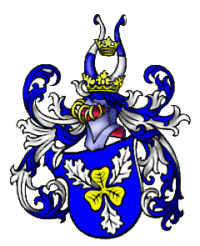Herbert von Bismarck
| Herbert | |
|---|---|
| Prince of Bismarck | |
.jpg) Herbert von Bismarck (1892, by C.W.Allers) | |
| Spouse(s) | Marguerite, Countess Hoyos |
|
Issue
Two daughters and three sons | |
| Noble family | House of Bismarck |
| Father | Otto von Bismarck |
| Mother | Johanna von Puttkamer |
| Born |
28 December 1849 Berlin |
| Died |
18 September 1904 (aged 54) Friedrichsruh |
| Religion | Protestantism |
Herbert, Prince of Bismarck (né Nicolaus Heinrich Ferdinand Herbert von Bismarck) (28 December 1849 – 18 September 1904) was a German politician, who served as Foreign Secretary from 1886 to 1890. His political career was closely tied to that of his father, Otto von Bismarck, and he left office a few days after his father's dismissal. He succeeded his father as the 2nd Prince of Bismarck in 1898. He was born in Berlin and died in Friedrichsruh.
Biography
| Styles of The Prince of Bismarck | |
|---|---|
 | |
| Reference style | His Serene Highness |
| Spoken style | Your Serene Highness |
| Alternative style | Sir |
Herbert von Bismarck born in Berlin, the oldest son of Otto von Bismarck and his wife Johanna, née von Puttkamer. He had an older sister, Marie (b. 1847), and a younger brother, Wilhelm (b. 1852). He fought in the Franco-Prussian War, sustaining a bullet wound through the left leg during a cavalry charge at the Battle of Mars-La-Tour. He joined the diplomatic service in 1874, on his father's wishes. He became Under-Secretary and acting head of the Foreign Office in 1885, and the following year he was appointed the Secretary of State for Foreign Affairs. He additionally was appointed Minister of State of the Kingdom of Prussia in 1888. He once said that 'My father is the only person who can handle this business.' He wanted to marry Princess Elisabeth von Carolath-Beuthen in 1881, but his father would not allow it, as she was a Catholic divorcee and she was ten years older than Herbert. The Chancellor pressured his son with tears, blackmail and threats to disinherit him by getting Kaiser Wilhelm I to change the primogeniture statutes. This experience left Herbert a very bitter and alcoholic man. He once shot five bullets through a Foreign Office window to be told he may have hit someone. He replied 'Officials have to be kept in a permanent state of irritation and alarm; the moment that ceases they stop working.' On 21 June 1892 in Vienna he married Countess Marguerite Hoyos, a member of the originally Spanish magnate family of Hoyos from Hungary, who herself was half-English and a granddaughter of Robert Whitehead, the inventor of the torpedo. They had five children:
- Countess Hannah Leopoldine Alice von Bismarck-Schönhausen (1893–1971), married Leopold von Bredow (1875–1933)
- Countess Maria Goedela von Bismarck-Schönhausen (1896–1981), married Hermann Graf Keyserling (1880-1946)
- HSH Otto Christian Archibald, Prince von Bismarck (1897–1975), married Ann-Mari Tengbom (1907–1999)
- Count Gottfried Alexander Georg Herbert von Bismarck-Schönhausen (1901–1949), married Melanie, Countess of Hoyos (1916–1947)
- Count Albrecht Edzard Heinrich Karl von Bismarck-Schönhausen (1903–1970), married Mona Travis Strader (1897–1983).
He entered the civil service in 1874 and was promoted during the chancellorship of his father to the position of undersecretary in the foreign office. He became State Secretary for Foreign Affairs in 1886.
In 1890, when Kaiser Wilhelm II called for the resignation of Otto von Bismarck as Chancellor, Herbert von Bismarck also resigned as State Secretary.
He was at his father's bedside when the latter died on 30 July 1898 at 10:57 pm.
He died in Friedrichsruh.
The capital of the German colonial administration of German New Guinea was called Herbertshöhe (now Kokopo).
Titles and styles in his entire life
- 1849–1865: Jkr. Herbert von Bismarck
- 1865–1898: High Born Count Herbert of Bismarck-Schönhausen
- 1898–1904: His Serene Highness The Prince of Bismarck
See also
Notes
- Regarding personal names: Fürst is a title, translated as 'Prince', not a first or middle name. The feminine form is Fürstin.
- Regarding personal names: Until 1919, Graf was a title, translated as Count, not a first or middle name. The female form is Gräfin. In Germany since 1919, it forms part of family names.
| German nobility | ||
|---|---|---|
| Preceded by Otto von Bismarck |
Prince of Bismarck 1898–1904 |
Succeeded by Otto Christian Archibald von Bismarck |